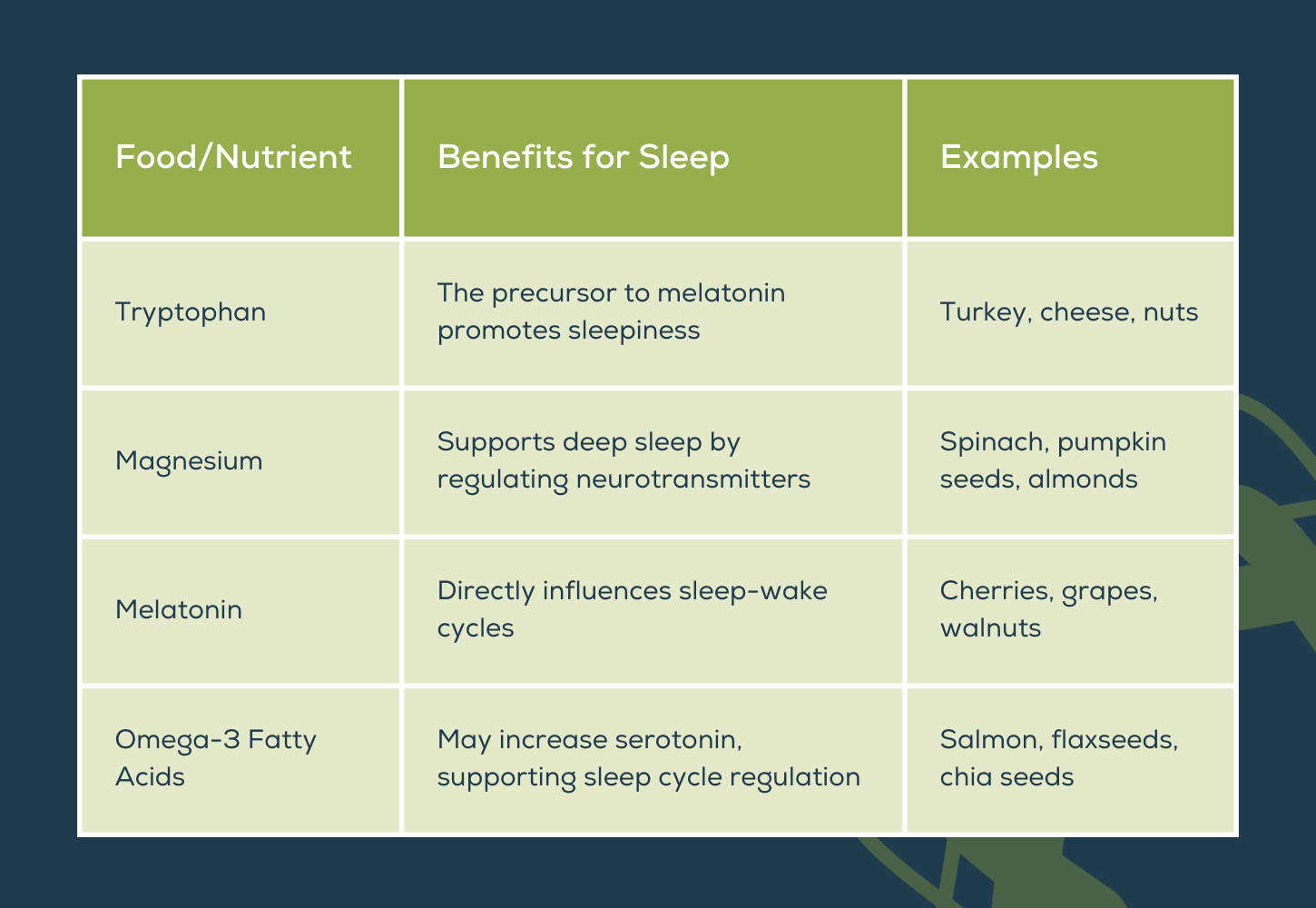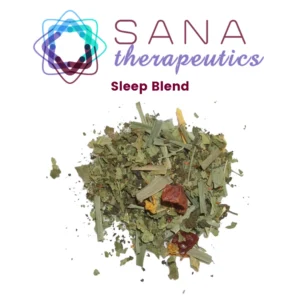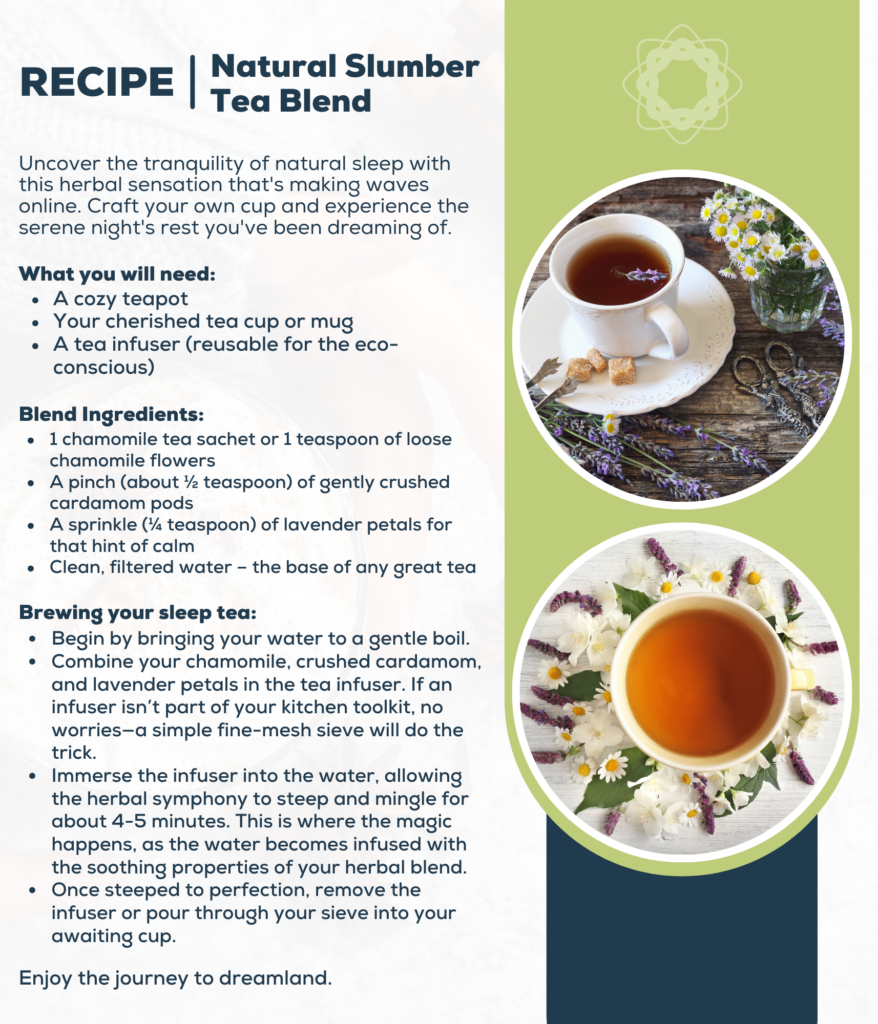
“Sleep is that golden chain that ties health and our bodies together.”
– Thomas Dekker
Here at Pain Free For Life, we often discuss various strategies for living pain-free, but have you ever considered that the secret to better sleep and less pain could be hiding in your kitchen? That’s right. What you eat has the power to transform your nights from restless to restorative, and it’s all rooted in the principles of the Hache Protocol for Pain Resolution.
Here at Pain Free For Life, we’re not just about finding temporary fixes; we’re about digging deeper and understanding how every aspect of our lives, including our diet, impacts our well-being.
So, let’s embark on this journey together to explore the essential connections between what’s on your plate and how you feel, both at night and during the day. We’ll examine how making mindful choices in your diet can lead to more restful nights and, importantly, how those Zs can help keep pain at bay.
Get ready to explore some of the Hache Protocol’s top diet tips to unlock the secret to restorative sleep.
It’s time to rethink your meals as not just fuel but medicine for your body and soul!
Essential Nutrients for Quality Rest
Let’s look at four essential nutrients and how they contribute to quality rest:
- Tryptophan: This amino acid is a precursor to melatonin, the hormone that signals our bodies it’s time to sleep. Found in foods like turkey, cheese, and nuts, tryptophan helps promote a sense of sleepiness and readiness to drift off.
- Magnesium: Often referred to as nature’s sedative, magnesium helps maintain levels of GABA, a neurotransmitter that encourages deep, restorative sleep. Foods rich in magnesium, such as spinach, pumpkin seeds, and almonds, can thus support better sleep quality.
- Melatonin: Directly involved in regulating our sleep-wake cycles, dietary sources of melatonin can help reinforce our body’s natural rhythms. Cherries, grapes, and walnuts are excellent examples of foods that boost our melatonin levels.
- Omega-3 Fatty Acids: Known for their anti-inflammatory properties, omega-3s, found abundantly in fish like salmon and seeds like flax seeds and chia seeds, may also enhance serotonin production. This can contribute to the regulation of a consistent sleep cycle, facilitating easier transitions to sleep.
To deepen your understanding of how these nutritional elements interact with our sleep health, enrich your knowledge with insights from The Science of Sleep and Its Effect on Autoimmune Diseases.
Nutrition and Sleep: Sleep-Supportive Foods and Their Effects
Understanding the interaction between these nutrients and our sleep patterns illuminates the path to optimizing our diet for better sleep health. Here’s how you can integrate these sleep-supportive foods into your daily routine:

Imagine ending your day with a meal that not only satisfies your palate but also sets the stage for a night of deep, peaceful sleep. A plate of grilled salmon, a refreshing spinach salad topped with almonds and pumpkin seeds, followed by a dessert of juicy cherries, isn’t just a feast for the senses—it’s a recipe for restorative slumber.
By embracing these principles and making conscious food choices, you can enjoy the delicious benefits of a diet designed for optimal sleep and minimal pain.
Evening Routines for Better Rest
Ever find yourself scrolling through your phone before bed and then can’t seem to fall asleep?
Yeah, that’s the blue light effect for you. Research from Harvard suggests that blue light can mess with our sleep by suppressing melatonin by about 22%.
My tip? Try to wind down with a book instead or use those blue light filters or glasses at bedtime. It can make a world of difference.
Total darkness is your best friend when it comes to sleep. Some studies highlight how even a little light can disturb our sleep cycle. Blackout curtains or a comfy eye mask are game-changers.
And let’s remember the temperature. According to the National Sleep Foundation, the ideal sleep temperature is around 60-67 degrees Fahrenheit. Keeping it cool can help you dive deeper into dreamland.
Noise can be such an aggravating sleep disruptor, can’t it? Noisy neighbors, traffic, chickens—fortunately, there’s a solution. Studies, like one in the Journal of Clinical Sleep Medicine, show that white noise can help mask those annoying sounds, helping us sleep more soundly. Maybe it’s time to try out a white noise app or machine. Or you can go the old-school route and run a fan.
Now, on to the topic of melatonin. Popping a melatonin pill seems like an easy fix, but it’s like a band-aid solution. In the long run, it might not be the best idea. A more natural way to boost that sleep hormone is by turning down the lights and sticking to a regular bedtime.
And who doesn’t love a midnight snack? But eating too close to bedtime can lead to a not-so-great night’s sleep. Sleep experts suggest keeping meals light and early in the evening, which can make a huge difference.
Finally, let’s chat about something we don’t often consider but is super important for our sleep quality – reducing EMF exposure in our bedrooms.
All those gadgets and electronics we love come with a side of electromagnetic fields, or EMFs, which can really mess with our sleep. So, here’s a game plan: first up, unplug and power down all electronic devices before bed. It’s simple but effective. Think about turning off your Wi-Fi router overnight, too …it’s an easy way to reduce EMFs.
If you have electronics in the bedroom, like a digital alarm clock, move them away from your bed. The strength of EMFs drops significantly with just a little distance, so every bit helps.
And finally, consider investing in Floww technology like our HomeFloww or Mobile Floww.
As the sun sets, it’s advisable to steer clear of stimulants such as caffeine and alcohol. These can disrupt your sleep patterns, leaving you feeling restless.
Instead, consider the Sana Therapeutics Sleep Blend, a blend of calming herbs designed to soothe your nervous system and ease you gently into dreamland. Its delicious blend complements a sleep-enhancing diet and can be a perfect addition to your nightly routine.
 |
Learn About Sana Therapeutics
Sleep Tea Blend Immerse yourself in the soothing world of Sana Therapeutics Sleep Tea, a carefully curated blend that combines the tranquil essence of valerian root, the tangy zest of rose hips, the refreshing zing of lemongrass, the soft whisper of balm mint, the citrusy twirl of orange peel, the delicate touch of safflower blossoms, and the sunny embrace of marigold flowers, among other natural ingredients. Its unique formulation is not only designed to alleviate anxiety and nervousness but also offers a natural remedy for those nagging headaches and migraines.
|
Prefer to make your own tea blend at home? Check out the recipe below!

Personalizing Your Sleep Nutrition Plan: A Tailored Approach
Remember, no two individuals are the same; thus, personalized nutrition plans are vital in addressing unique sleep challenges. Assessing your dietary preferences and lifestyle choices in relation to sleep improvement is fundamental. And remember, if you have any severe health conditions, always speak with your doctor or primary healthcare provider before embarking on any significant dietary changes.
Consider the Hache Protocol Reset for guidance on integrating the five interactive elements of The Hache Protocol into your lifestyle to eliminate chronic pain and inflammation – including diet! This program offers customized advice and treatment plans to optimize your sleep, reduce your pain, and get you on track to a life free from pain and suffering.
- Learn more about The Hache Protocol Reset here.
Restful Sleep and Pain-Free Living with The Hache Protocol™
As we wrap up our exploration of the vital link between diet and sleep, it’s clear that the choices we make at the dinner table can lead us toward a future of restful nights and pain-free days. Integrating key nutrients like tryptophan, magnesium, melatonin, and omega-3 fatty acids into our meals doesn’t just promise a tantalizing culinary experience; it paves the way for deeper, more restorative sleep and a life liberated from the grip of chronic pain.
From optimizing our evening routines to choosing the right foods and embracing natural sleep aids like the Sana Therapeutics Sleep Blend, we’ve outlined a comprehensive approach to improving sleep quality and overall health. This holistic strategy, grounded in the principles of the Hache Protocol, doesn’t just aim to treat symptoms but seeks to foster a balanced, harmonious lifestyle where good health is the norm, not the exception.
We invite you to become an architect of your own well-being. Start by experimenting with the dietary tips provided, savoring a cup of Sana Therapeutics Sleep Blend, and embracing the holistic principles of The Hache Protocol. Your journey to tranquil nights and energized mornings begins with your choices today. Explore further and enrich your life with knowledge and practices that honor your body’s sleep needs.





